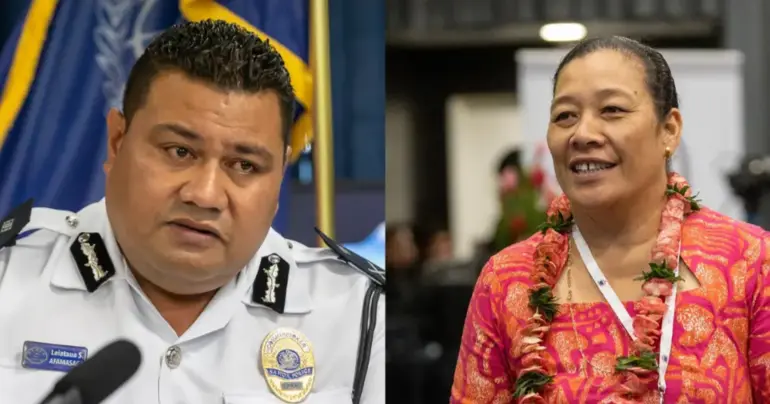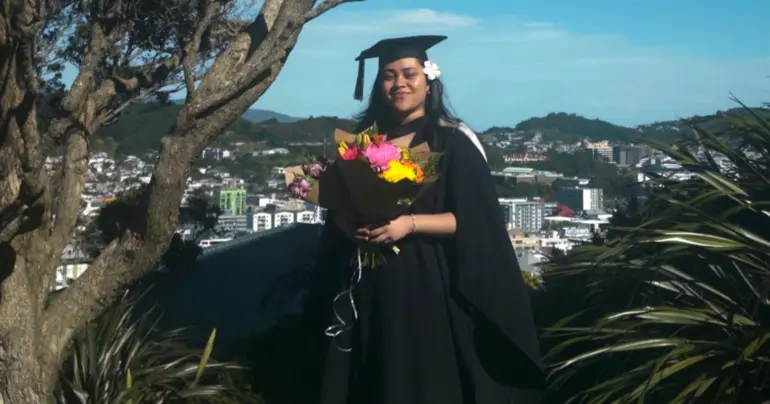Chinese Embassy in Samoa speaks up on Hong Kong security laws
 By Sapeer Mayron
•
21 June 2020, 10:00AM
By Sapeer Mayron
•
21 June 2020, 10:00AM
Changes to Hong Kong’s national security legislation is “legally sound and consistent with international common practices.”
So claimed the Chinese Embassy in Samoa in a document sent to the Samoa Observer this week.
In a series of questions and answers, a spokesperson for the Embassy outlines what the new legislation is, whether the Chinese Government has “legitimacy” to write and uphold the new laws and what they believe the impacts are on Hong Kong will be.
The new laws, which would see mainland Chinese security agencies and secret police installed in Hong Kong, have shocked pro-democracy leaders in Hong Kong and stirred widespread alarm.
Last week, the G7 (Canada, France, Germany, Italy, Japan, the United Kingdom and the United States) signed a joint letter expressing concern over the laws, but were told by the Chinese Foreign Ministry to stay out of its affairs.
“China’s determination to push for a national security law in Hong Kong is unshakeable,” China’s top diplomat, Yang Jiechi, told the U.S secretary of state at a bilateral meeting on Thursday.
“China resolutely opposes the U.S interference in Hong Kong affairs and the G7 foreign ministers releasing a statement on Hong Kong,” he said.
Beijing has indicated it will pass the legislation quicker than normal, having tabled a draft before the National People’s Congress committee on Thursday. Typically legislation goes through three rounds of deliberation by the committee but China’s Foreign Minister Wang Yi has said the laws will be instigated “without delay.”
The laws have been mired in controversy as they seek to clamp down on the pro-democracy protests in Hong Kong, met with riot police and tear gas by police.
China insists the laws have no bearing on Hong Kong’s autonomy from mainland Chin but others disagree, with the Hong Kong Bar Association calling it unconstitutional last month.
In a statement, Samoa’s Chinese Embassy spokesperson said the only risk to Hong Kong is “chaos and disorder.
“The legislation is exactly for the purpose of stopping the chaos and rampant violence,” the spokesperson said.
“It will provide a more steady social environment, a more sound legal environment, and a more stable and predictable business environment in Hong Kong.
“Only in this way can Hong Kong strengthen its status as an international financial, trading and shipping centre.”
The laws target “acts of secession, subverting state power and organizing and carrying out terrorist activities, as well as interference in the H.K.S.A.R.’s (Hong Kong Special Administrative Region), internal affairs by foreign or external forces.”
The Embassy Spokesperson says China has had to drive through the national security legislation because despite its obligations, Hong Kong has not done the work itself yet.
“23 years after Hong Kong's return to the motherland, the city still hasn't fulfilled its constitutional obligation to safeguard national security and remains full of loopholes,” the spokesperson said.
“Since the turbulence over proposed legislative amendments last June, we have seen organizations and radical separatists openly called for gaining independence from the country.
“We've also seen escalated violence and terrorist activities in Hong Kong. All these have posed a grave threat to the functioning of Hong Kong's society, and placed national security in serious jeopardy.
“To establish a legal system and enforcement mechanisms for safeguarding national security in Hong Kong S.A.R. has become a pressing priority, and we must get it done without any more delay.”
The legislative amendments last June sparked the protests that continue until today were a second wave of protests after a 2003 attempt to pass national security laws were met with widespread challenge too.
Last June, a new bill was proposed which would have formed an extradition agreement between Hong Kong and China, leading to fears Hong Kong residents would be subject to mainland laws.
Critics said this threatens Hong Kong’s autonomy, which it has under the ‘One Country, Two Systems” approach, and fear the law would end that structure.
Protests, which have railed in public since, have attracted hundreds of thousands people to the streets, with some reports suggesting two million attended some of the early protests. Around 3000 people have been injured, and around 9000 arrested, while two people have died.
The Embassy spokesperson said the new security law does not threaten the One Country Two Systems approach.
“The original intention and mission of “one country, two systems” is to safeguard the sovereignty and national integrity of the country and the long-term prosperity and stability of Hong Kong.
“The most majority of Hong Kong people support “one country, two systems” and support a prosperous, stable, and peaceful Hong Kong.
“A small handful of traitors and “Hong Kong independence” extremists cannot speak for the public in Hong Kong.”
The spokesperson goes on to say that a petition circulating Hong Kong in support of the national security laws gathered nearly two million signatures in five days.
No news media outside of China has reported on the petition. The Hong Kong Free Press reports several artists and performers have come out to deny they signed a joint statement from the arts and cultural sector, despite being listed as having done so.
“I have no idea where the statement came from, I was never asked to sign anything,” said Hong Kong pianist Jacqueline Li, who performs for the Hong Kong Sinfonietta.
The laws have also drawn American ire, with White House national security adviser Robert O’Brien warning sanctions could come down.
“It looks like, with this national security law, they’re going to basically take over Hong Kong,” Mr. O’Brien told the National Broadcasting Company (N.B.C.)
“It’s hard to see how Hong Kong could remain the Asian financial centre that it’s become if China takes over.”
The Embassy spokesperson said the new laws will not lessen freedom of speech in Hong Kong, saying that not only are freedom of speech laws still protected in Hong Kong but they will be even safer with these new laws.
“It means the small minority of serious offenders jeopardizing national security that will be punished. Hong Kong citizens' legal rights and freedoms will be better protected.
“Freedom of speech, just like any other rights, has its limit and must be exercised within the bounds of the law. Lots of incidents and cases show that the freedom of speech has been compromised and endangered because the rioters are emboldened by the lack of national security legislation in Hong Kong S.A.R.”
The full piece by the Embassy of China in Samoa:
On 28th May, China's top legislature adopted the decision on national security legislation for the Hong Kong Special Administrative Region (HKSAR) during the third session of the 13th National People's Congress (NPC) in Beijing.
The HKSAR government and various social groups and individuals in Hong Kong have welcomed and supported the decision, and pledged to facilitate the early completion of the legislative process with maximum efforts to safeguard national security and protect Hong Kong.
It is a view widely shared in the global community that China's national security legislation for Hong Kong is legally sound and consistent with international common practices.The following are some typical Q&As about the legislation, which are provided by the Spokesperson of the Embassy of China in Samoa.
Q1: What is "national security legislation for the Hong Kong Special Administrative Region (SAR)"?
A: On May 28, the 13th National People's Congress (NPC) adopted at its Third Session the NPC Decision on Establishing and Improving the Legal System and Enforcement Mechanisms for Safeguarding National Security in the Hong Kong Special Administrative Region (HKSAR). After the decision is adopted, the NPC Standing Committee will work with related parties to formulate related laws to solve Hong Kong's problems in maintaining national security, strengthen the construction of specialized and law enforcement agencies and ensure the law to be effectively implemented in Hong Kong SAR.
Q2: Does the Central Government have the legitimacy in formulating these laws?
A: Yes. The Central Government is responsible for upholding national security, as is the case in any other country. Enacting national security legislation is an exercise of a nation's sovereignty. Through Article 23 of the Basic Law of the HKSAR, the Central Government authorizes the Hong Kong SAR to fulfill its constitutional duty by enacting laws on its own. The authorization, however, does not prevent the Central Government from developing a legal system and enforcement mechanisms for safeguarding national security in light of the actual situation and needs.
The NPC's decision is in keeping with China's Constitution, the Basic Law and the policy of "one country two systems".
Q3: Why does China decide to promote the national security legislation?
A: Hong Kong is part of China. 23 years after Hong Kong's return to the motherland, the city still hasn't fulfilled its constitutional obligation to safeguard national security and remains full of loopholes.
Since the turbulence over proposed legislative amendments last June, we have seen organizations and radical separatists openly called for gaining independence from the country. We've also seen escalated violence and terrorist activities in Hong Kong. All these have posed a grave threat to the functioning of Hong Kong's society, and placed national security in serious jeopardy.
Hong Kong should not be an "unguarded" city. To establish a legal system and enforcement mechanisms for safeguarding national security in Hong Kong SAR has become a pressing priority, and we must get it done without any more delay.
Q4: Do Hong Kong residents generally oppose the national security legislation?
A: No. The most majority of Hong Kong people support "one country, two systems" and support a prosperous, stable, and peaceful Hong Kong. A small handful of traitors and "Hong Kong independence" extremists cannot speak for the public in Hong Kong.
On 24th May, a petition was launched in Hong Kong to support the national security legislation for the SAR, which has gathered signatures of more than 1.85 million people in just 5 days. The SAR Government, the chairman of the SAR's Legislative Council, the majority of the Council's members, and different sectors of the society have also expressed their strong support for the decision of the National People's Congress.
Q5: Will this be "the end the 'one country, two systems'" as some people claimed?
A: No. The original intention and mission of "one country, two systems" is to safeguard the sovereignty and national integrity of the country and the long-term prosperity and stability of Hong Kong. After the national security legislation in Hong Kong, the "one country, two systems" policy will not change. The current system in Hong Kong will not change. The high degree of autonomy of Hong Kong will not change. The SAR's legal system will not change.
The Macao Special Administrative Region of China, which is also China's "one country, two systems" region, completed its local legislation for the Law on Safeguarding National Security as early as 2009. It has proven to be a safeguard for Macao's prosperity and stability in economic and social development.
Q6: Will there be less freedom of speech in Hong Kong after the legislation?
A: No. The legislation will target only acts of secession, subverting state power and organizing and carrying out terrorist activities, as well as interference in the HKSAR's internal affairs by foreign or external forces. It means the small minority of serious offenders jeopardizing national security that will be punished. Hong Kong citizens' legal rights and freedoms will be better protected.
Freedom of speech, just like any other rights, has its limit and must be exercised within the bounds of the law. The Hong Kong citizens' rights and freedoms of speech, press, publication, or assembly enshrined in the law will not be prejudiced by the legislation, but will only be better protected in a safe environment. Last year, He Junyao, a pro-establishment lawmaker, was stabbed by a violent demonstrator. Chen Ziqian, a Hong Kong lawyer, was beaten by rioters on the street. Two TVB journalists were hit by petrol bombs thrown by rioters and got burned. A cameraman was confronted by rioters, who yelled at him to give them the camera if he doesn't want to die. It was not until he was forced to hand out two memory cards that they let him go. Lots of incidents and cases show that the freedom of speech has been compromised and endangered because the rioters are emboldened by the lack of national security legislation in Hong Kong SAR.
Q7: Will the legislation harm the development of the SAR's economy?
A: No. Chaos and disorder are the biggest obstacles to the development of Hong Kong's economy. The legislation is exactly for the purpose of stopping the chaos and rampant violence. It will provide a more steady social environment, a more sound legal environment, and a more stable and predictable business environment in Hong Kong. Only in this way can Hong Kong strengthen its status as an international financial, trading and shipping center. We should have more confidence in Hong Kong's future.
 By Sapeer Mayron
•
21 June 2020, 10:00AM
By Sapeer Mayron
•
21 June 2020, 10:00AM











